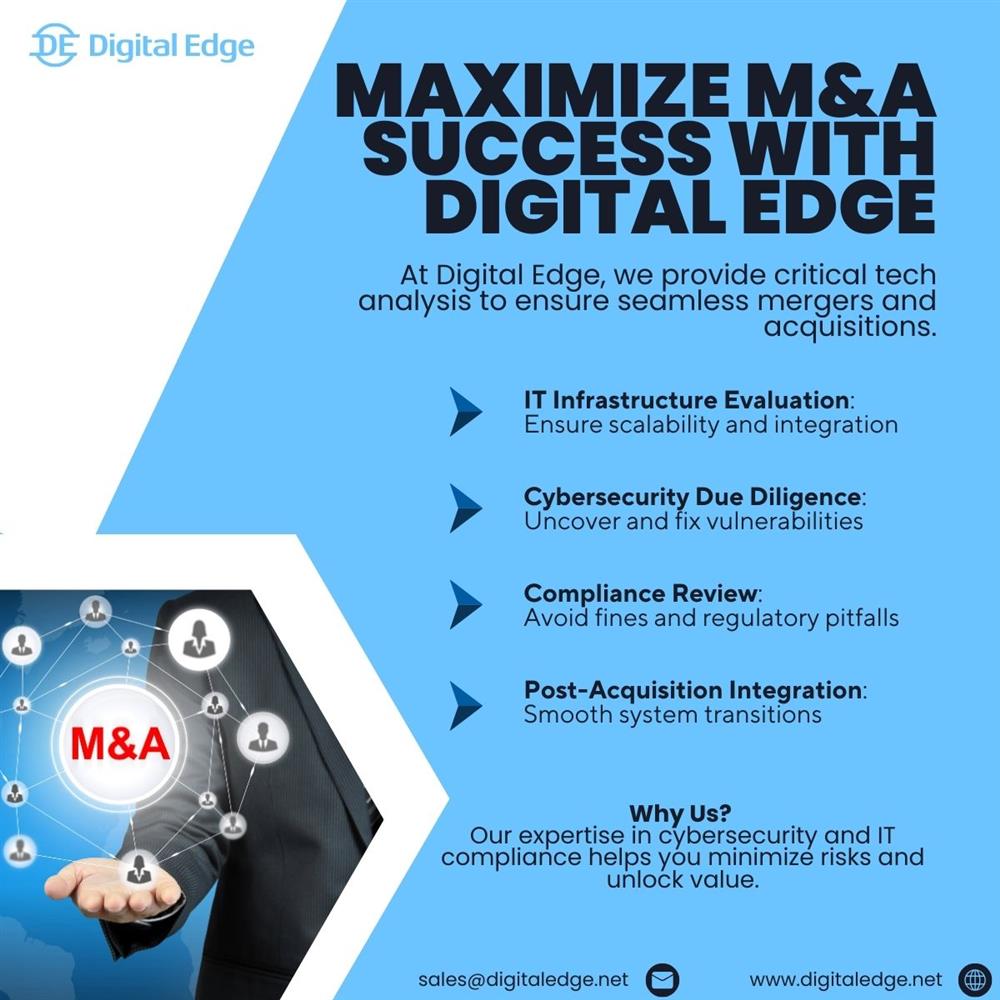Compliance
Never Let a Breach Go to Waste: Turning Setbacks into Strategic Opportunities
In today’s digital landscape, cybersecurity breaches are an unfortunate reality for many organizations. While these incidents can be devastating, they also present a unique opportunity for companies to reassess their security posture and improve their defenses. The phrase “never let a breach go to waste” encapsulates the idea that organizations can leverage the lessons learned from a breach to enhance their security measures, increase budget allocations for cybersecurity, and ultimately fortify their operations against future threats.
A $350,000 Wake-Up Call
The article covers a $350,000 HIPAA settlement with Northeast Radiology, spotlighting the leadership and risk management failures behind the breach. It emphasizes the need for proactive security and shows how Digital Edge’s vCISO services help organizations avoid such risks.
Preparing for DORA Compliance: How Digital Edge Can Help Clients
As organizations increasingly navigate the complexities of digital transformation, compliance with regulations such as the Digital Operational Resilience Act (DORA) becomes paramount. DORA is designed to strengthen the resilience of financial institutions and ensure they can withstand and recover from various operational disruptions, particularly in the digital realm. However, achieving compliance can be daunting. This is where Digital Edge Ventures comes in, offering essential services to help clients prepare effectively.
Navigating the Challenges of Third-Party Vendor Breaches: The Oracle Incident
In the realm of cybersecurity, trust is paramount, especially when it comes to third-party vendors who hold crucial data for your organization. Recently, Oracle faced serious allegations of a major data breach that reportedly exposed sensitive customer information. However, the tech giant has publicly denied these claims, leaving clients and stakeholders in a state of uncertainty. This scenario raises important questions about the reliability of third-party vendors and how organizations can protect themselves when they suspect that a breach has occurred.
ISO 27001:2022 Security Commitment
Digital Edge is committed to continuing to conform to the requirements of ISO 27001:2022 and has maintained its ISO certification for nearly a decade.
Digital Edge General Data Protection Regulation Policy
Digital Edge is not a controller for purposes of GDPR. However, we are fully committed to assisting our clients in fulfilling their GDPR requirements.
Digital Edge Service Level Policy
This Service Level Policy (“SLP”) is a policy which describes the standard service levels at which the Customer Services (defined below) will be provided for any entity that becomes or maintains its status as a Digital Edge “Client” (as defined below) by executing a Digital Edge Master Service Agreement (“MSA”) on or after March 3,2025. This policy is not a contract and is subject to change at Digital Edge’s sole discretion. In the event of a conflict between the terms of this SLP and the terms of the MSA, or any Work Orders, Statements of Work, Service Agreements (each to be treated as types of “Work Orders” hereunder), Quote(s), or Other Service Contract(s) executed between a Digital Edge and Client, the terms of such MSA, Work Orders, Quotes, and Other Services Contracts shall prevail and govern.
Digital Edge Has Achieved The Prestigious SOC 2 Certification
Exciting News!
We are thrilled to announce that Digital Edge has achieved the prestigious SOC 2 certification! This milestone underscores our unwavering commitment to the highest standards of cybersecurity, IT compliance, and service excellence.
Why SOC 2 Matters: SOC 2 (Service Organization Control 2) certification is a rigorous standard that evaluates the effectiveness of an organization's controls related to security, availability, processing integrity, confidentiality, and privacy of customer data. Achieving this certification demonstrates our dedication to maintaining robust data security and providing our clients with the utmost confidence in our services.
What This Means for Our Clients: With our SOC 2 certification, clients can rest assured that Digital Edge operates with the highest level of integrity and security. Our comprehensive NOC/SOC services are now backed by this significant endorsement, ensuring that we meet and exceed industry standards for protecting sensitive information and delivering reliable IT compliance solutions.
Thank You! This accomplishment would not have been possible without the hard work and dedication of our incredible team. Your relentless pursuit of excellence and commitment to best practices have made this achievement a reality.
Join Us on Our Journey: Stay tuned as we continue to innovate and elevate our services, always with the goal of providing top-tier cybersecurity and IT compliance solutions. Thank you to our clients, partners, and supporters for your trust and confidence in Digital Edge.
Digital Edge Achieves SOC 2 Compliance
I am happy to announce that Digital Edge has successfully completed its SOC 2 Type II Audit! The team worked hard to collect and submit all the evidence to our auditors at Hogan Taylor who did a great job in quickly responding to and meeting our needs. A great job all around.

